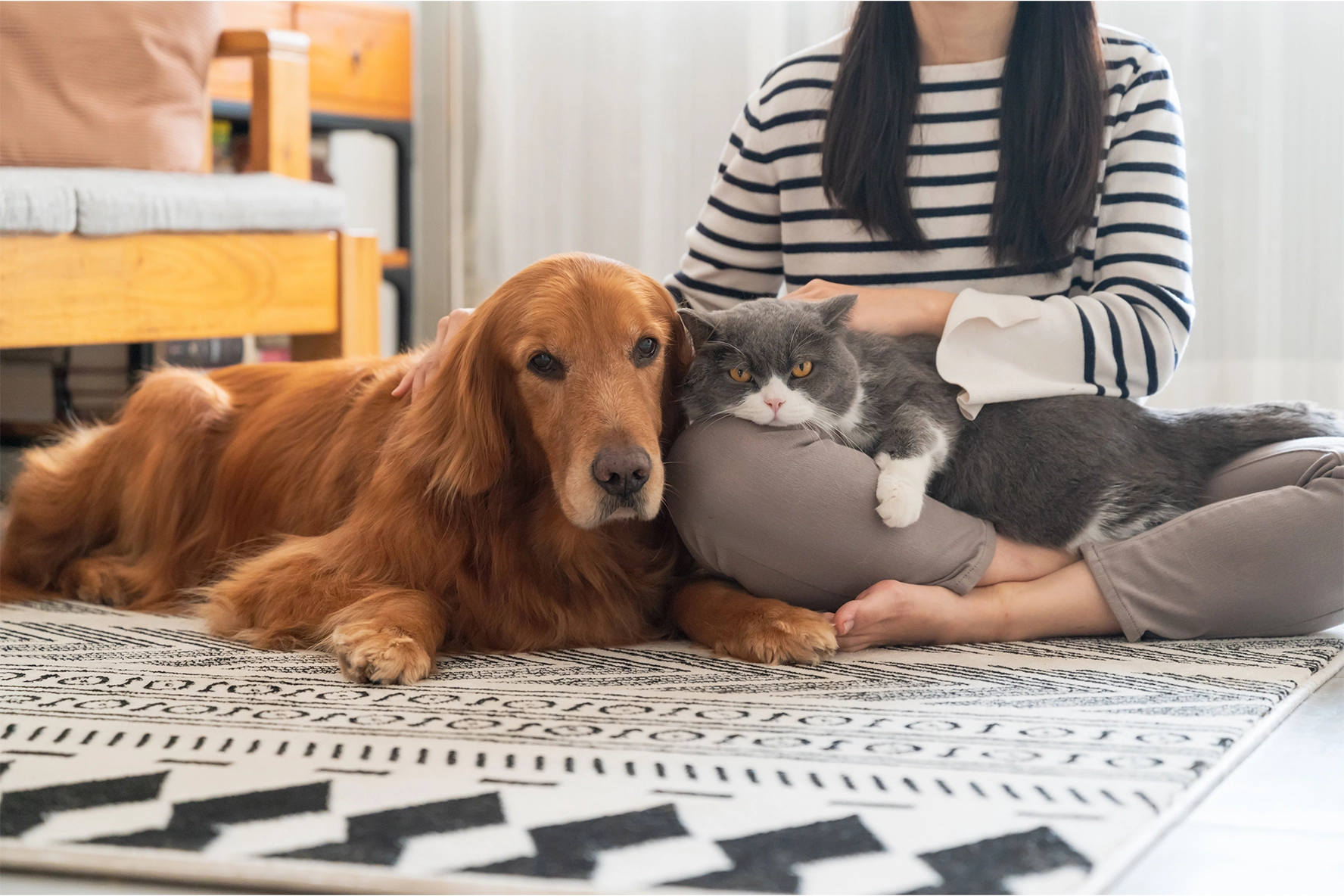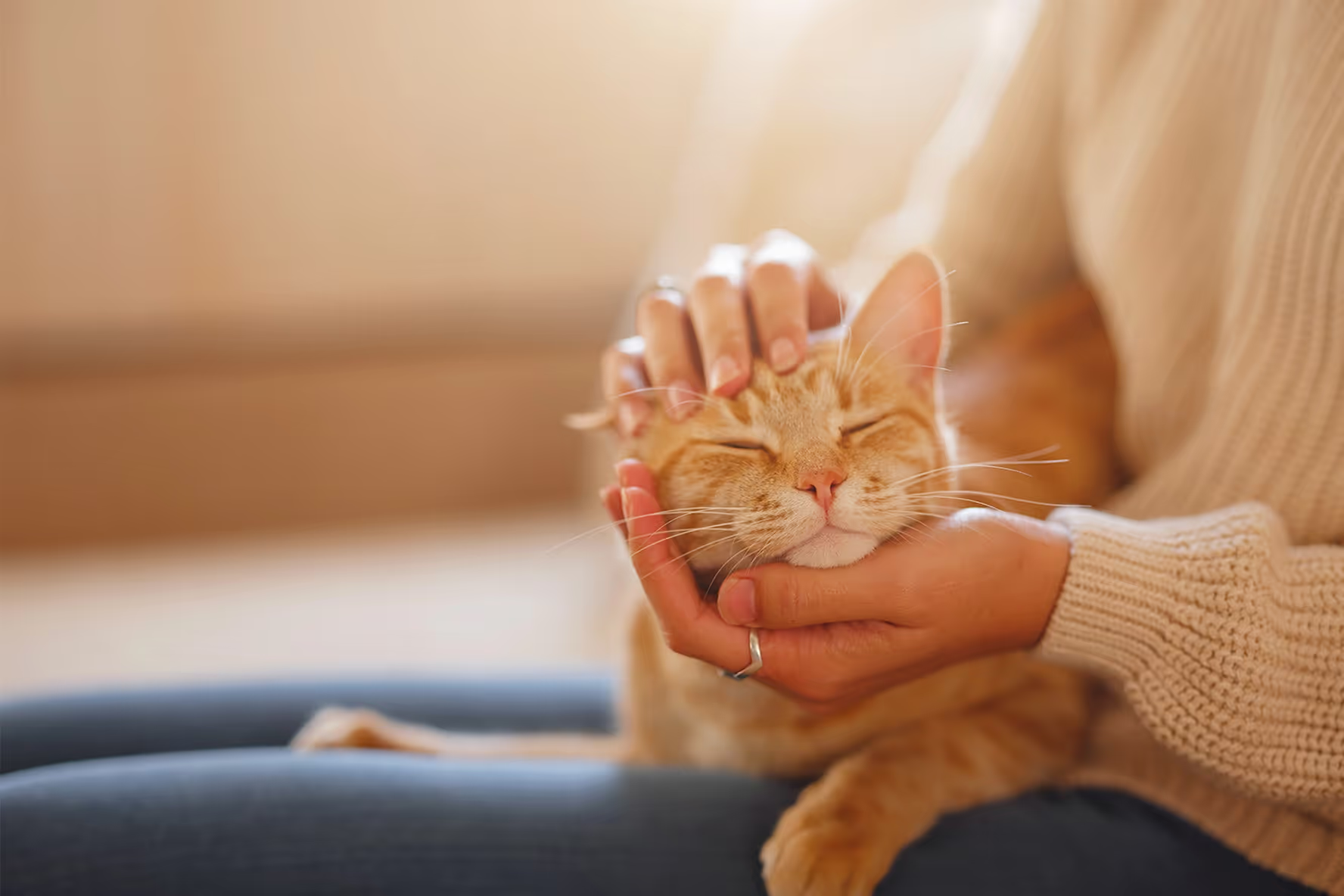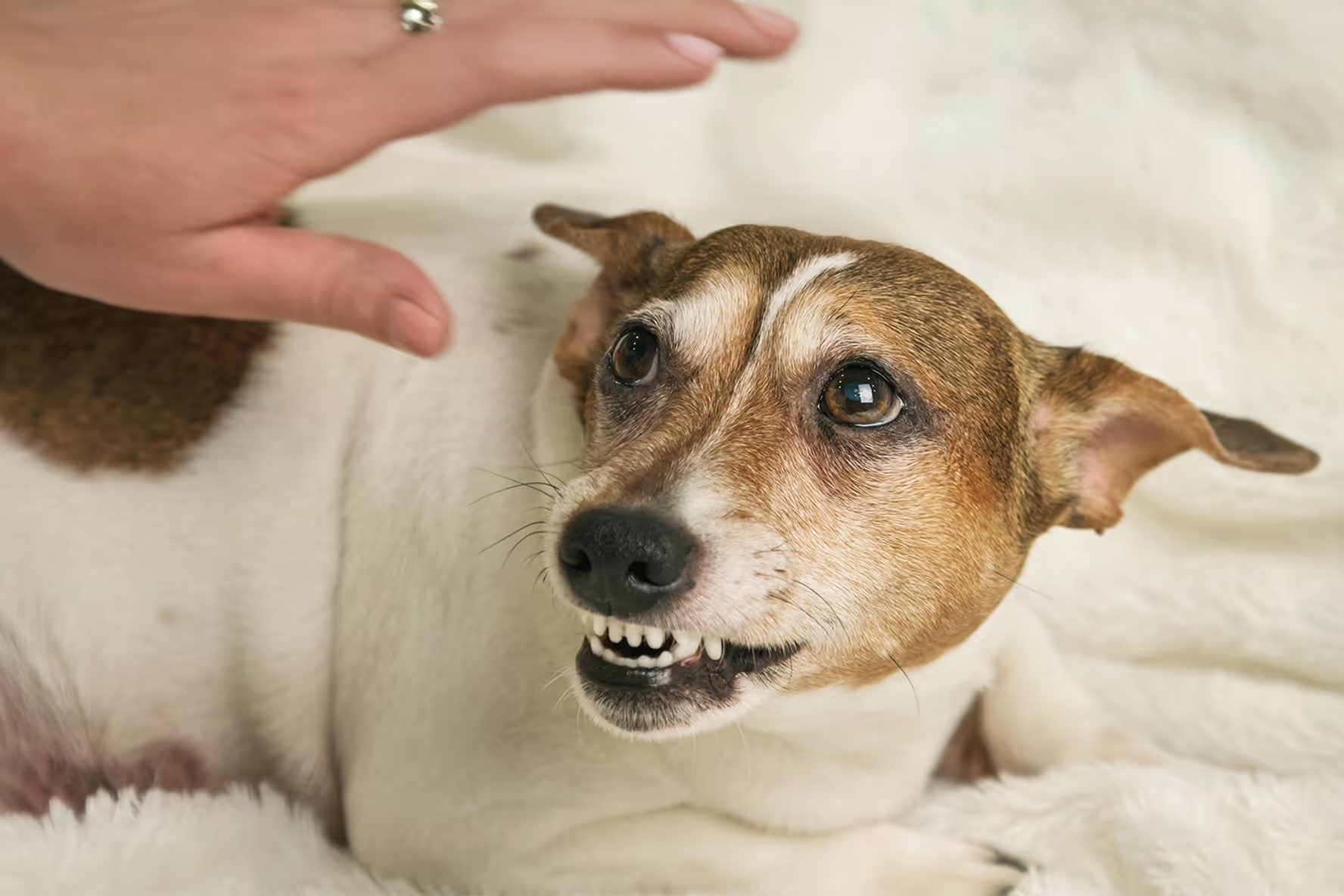Safe Foods to Share With Your Dog During Thanksgiving Dinner

We know you’re thankful for your dog being a part of your family, but there are some traditions that, unfortunately, they shouldn’t take part in. Our dogs love table scraps, especially on big holidays where family members that don’t see them very often try to win their favor with treats from their plates.
While it may be safe for some of the food to fall on the floor, the sad truth is that your pooch will be better off sticking to their normal meal on turkey day.
However, there are a few foods that are safe for your pet to consume. Let’s start with the fun stuff.
What foods can you share with your dog on Thanksgiving?
Some of the staples for a classic Thanksgiving meal have variations that are beneficial to your dog’s health, and taste good to them too. The American Kennel Club had some experts discuss the safe options for sharing a holiday meal with your pup.
Be mindful that this list doesn’t mean that the ingredient in any form is safe for your dog. In any case, food that is given to your dog should specifically avoid seasonings of any kind, especially salt.
Sweet potatoes- These can be a great addition to many different pet treats, and are a good source of dietary fiber, vitamin B6, vitamin C, and beta-carotene. Sweet potatoes can be used to bake DIY dog treats or baked, cooled, and given plain to your pet as a bonus to their food for the special holiday.
Potatoes- Regular potatoes can provide a fun treat for your pet as well; while not often used as an ingredient in pet treats, a plain baked potato with no seasoning or butter can help your pooch feel like a part of the family feast. Though it is important that you serve in moderation. There are a lot of carbohydrates in potatoes and your dog is built mainly to digest proteins, so when they’re given too many carbs they can experience digestive issues.2
Apples- An everlasting treat of the fall season that is actually good for your pooch. Apples contain plenty of vitamins A and C as well as lots of fiber. The only thing to watch out for is limiting the number of seeds that your dog consumes—too many can be toxic.
Turkey meat- It’s safe to share the meat from the main course of your Thanksgiving feast with your pet. The caveat to this sharing is that it needs to be exclusively the meat of the turkey. Dogs shouldn’t be given the bones from the turkey because they are fragile and can split or shard, causing damage to your dog’s digestive tract. And to play it safe, avoid giving your dog the skin of the bird as well. The seasonings and extra fat on the cooked skin may cause your dog to get sick.
Green beans- Green beans can be an incredible source of plant fiber, manganese, and vitamins C and K. If you consider giving your dog green beans make sure that it is without any additives. Raw and cooked green beans are good for your dog so long as there is no seasoning or butter in the mix.3
Peas- Peas are filled with several vitamins and minerals as well as fiber and protein. They are yet another item on this list that should be given as plainly as possible, either fresh or frozen, cooked or raw, but avoiding any of the special kinds like creamed or canned to keep your dog safe from extra sodium or fats.3
Pumpkin- Pumpkin can be really great for your dog as it can help with digestive health and provide nutrients that benefit your dog’s skin and fur. As with all of these ingredients, it is important to make sure the pumpkin is plain, some cans of pumpkin puree are pre-seasoned for pie-making so be sure to verify you have a plain can when sharing with your pooch.
What foods aren’t safe to share with your dog on Thanksgiving?
The boundary between foods that are delicious to humans and dangerous to dogs is often not easy to see. Especially on major family holidays where not everyone seated at the table may have the same caution as you, the pet owner, would.
Being upfront with your dinner guests about your pet’s safety and health will help lower the chances of your dog getting sick or being one of the unfortunate cases to the emergency room. With children especially, it is important to communicate so those kiddos who don't like parts of their meal don't feel it’s okay to let their furry friend help them out in clearing their plate. And be sure that you are taking precautions with your garbage so that no sneaky noses will want to break in and steal some unhealthy treats when no one’s looking.
Keep in mind these foods that your dog should absolutely avoid, not just on Thanksgiving but every day.
Seasonings- There are a handful of seasonings that are safe for your dog, but due to the most commonly used spices in human cooking—salt and pepper—being dangerous to your dog it’s safest for you to assume that any seasoning will cause your dog issues. Those problems could be anything from dehydration to seizures.
Turkey bones, skin, and gravy- As we know, turkey bones provide a physical threat to your dog’s health, the skin is usually the part with the most seasoning, and gravy contains mostly excess fat that your pet doesn’t need and will impact their digestion.
Onions, scallions, and garlic- While these ingredients provide great flavor to a human palate, they are a part of a plant family that is poisonous to pets. Onions can cause your dog’s white blood cells to rupture, induce vomiting, cause stomach pain, or give diarrhea—none of which are a great addition to a Thanksgiving party.3
Stuffing- Stuffing is best to avoid due to the amount of seasoning that goes into it, as well as a large amount of carbohydrates and fats.
Raisins and grapes- Grapes and their dried counterparts are incredibly toxic to dogs of any age, breed, size, or gender. They have been known to cause acute sudden liver failure.3 Chocolate and sweets (especially sugar-free)- It’s well known that chocolate isn’t safe for dogs. But not many people know about the ingredient xylitol, which is commonly found in sugar-free treats or sweetener substitutions. This particular sweetener substitution is found very commonly in diabetic-friendly items so keep an eye out for those. Xylitol can be deadly to your dog if consumed, so protecting your dog from most desserts or being mindful of ingredients before sharing is required.4
As with most things in life, when sharing food with your dog, moderation will always lead to a safer outcome in the long run. If you aren’t sure if a food is safe for your dog, it’s better to avoid it than give it to them and hope for the best.
However, accidents happen, sometimes we can’t keep track of who’s giving special treats to our pet under the table, so keep an eye on your pet during these holidays. The best way to protect them is to keep them away from family (mainly children) who might not have their safety in mind the way you do, if your pooch is kennel trained you may want to get them out of dodge until the food has been cleared. They may show signs of stomach issues or even become tired of socializing, so paying attention to your dog will keep them happier and safer throughout the evening.


